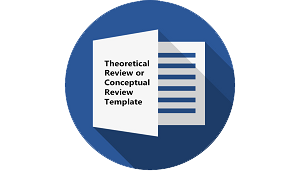Implementation of Postmethod Pedagogy as an Alternative to Communicative Language Teaching at the Tertiary Level Education
DOI:
https://doi.org/10.30957/ijoltl.v5i3.633Keywords:
Communicative Language Teaching (CLT), Postmethod Pedagogy, English Language Teaching, Tertiary Level, BangladeshAbstract
Along with the subsequent development in the field of English Language Teaching, the idea of methods has been criticized for not being sensitive to the contextual factors and also for being imperialistic in nature. The linguistic and cultural dimensions of archetypal methods establish the culture and language of the native speakers as the only erudite variety by promoting monoculturalism and monolingualism. Furthermore, even in Bangladesh, it can be seen that CLT has been applied as a method to teach English as a foreign/second language since the mid-nineties, but it has not brought any significant changes. Therefore, to overcome the obstacles and limitations experienced by the application of the prototypical methods, the notion of postmethod pedagogy has been introduced which focuses on the significance of contextualized materials to bring authenticity in English language classrooms, which in turn ensures learners’ motivation and successful intake of the lesson. At the same time, it also emphasizes the importance of teacher and learner autonomy. Hence, this research paper explores the scopes of the implementation of postmethod pedagogy and its effectiveness at the tertiary level English language classrooms in Bangladesh.
Downloads
References
Coughlan, M. (2009). Interviewing in qualitative research. International Journal of Therapy and Rehabilitation, 16, 309-314. DOI: 10.12968/ijtr.2009.16.6.42433
Didenko, A.V. &Pichugova, I.L. (2016). Post CLT or Post-Method: major criticisms of the communicative approach and the definition of the current pedagogy. SHS Web of Conferences, 28, 1-4. Retrieved from https://www.shs-conferences.org/articles/shsconf/pdf/2016/06/shsconf_rptss2016_01028.pdf
Dilshad, R. M. &Latif, M. I. (2013). Focus Group Interview as a Tool for Qualitative Research: An Analysis. Pakistan Journal of Social Sciences (PJSS), 33, 191-198. Retrieved from https://www.bzu.edu.pk/PJSS/Vol33No12013/PJSS-Vol33-No1-16.pdf
Gahin, G., &Myhill, D. (2001) The Communicative Approach in Egypt: Exploring the Secrets of the Pyramids. TEFL Journal, 1, 72-81. Retrieved from http://www.teflwebj.org/v1n2/Gahin_Myhill.html
Ghanbari, B, &Ketabi, S. (2011). Practicing a Change in an Iranian EFL Curriculum: from Ivory Tower to Reality. Iranian EFL Journal, 7, 9-13. Retrieved from https://www.mjselt.com/wp-content/uploads/2014/01/Decembert-2011-Vol7-6.pdf
Huda, E. M. (2013). Post-Method Pedagogy and ELT in Bangladesh. Global Journal of Human Social Sciences, 13 (7), 7-14. Retrieved from https://globaljournals.org/GJHSS_Volume13/2-Post-Method-Pedagogy-and-ELT.pdf
Kabir, S. M. S. (2016). Basic Guidelines for Research. Chittagong: Book Zone Publica-tion.
Kandel, R. K. (2019). Postmethod Pedagogy in Teaching English as a Foreign Lan-guage: Students' Perceptions. Journal of NELTA Gandaki (JoNG), 2, 91-112. Retrieved from https://www.scilit.net/article/d9b61d326c736f1c0207c19b329642d6
Koosha, M. &Yakhabi, M. (2013). Problems Associated with the Use of Communica-tive Language Teaching in EFL Contexts and Possible Solutions. International Journal of Foreign Language Teaching & Research, 1, 77-90. Retrieved from https://pdfs.semanticscholar.org/76c5/454d0d3931e773be58e3804e1e13081ea4dc.pdf
Kumaravadivelu, B. (1994). The postmethod condition: Emerging strategies for sec-ond/foreign language teaching. TESOL Quarterly, 28, 27-48. DOI: 10.2307/3587197
Kumaravadivelu, B. (2001). Toward a Postmethod Pedagogy. TESOL Quarterly, 35, 537-560. Retrieved from http://www.bkumaravadivelu.com/articles%20in%20pdfs/2001%20Kumaravadivelu%20Postmethod%20Pedagogy.pdf
Kumaravadivelu, B. (2003). Beyond Methods: Macrostrategies for Language Teaching. New Haven and London: Yale University Press.
Kvale, S. (1996). Interviews: An introduction to qualitative research interviewing. Thousand Oaks, CA: Sage.
Li, D. (1998). It’s always more difficult than you plan and imagine: Teachers’ perceived difficulties in introducing the communicative approach in South Korea. TESOL Quarterly, 32, 677-703. DOI: 10.2307/3588000
Liao, X. (2014). The need for Communicative Language Teaching in China. ELT Jour-nal, 58, 270-273. DOI: 10.1093/elt/58.3.270
Lightbown, P.M., &Spada N. (1999). How Languages are Learned. Oxford: Oxford University Press.
Nunan, D. (2003). Practical English Language Teaching. New York: McGraw Hill
Pennycook, A. (1989). The concept of method, interested knowledge, and the politics of language teaching. TESOL Quarterly, 23, 589-618. DOI: 10.2307/3587534
Richards, J. C. & Rodgers, T. S. (2001). Approaches and methods in language teaching (2nd ed.). New York: Cambridge University Press.
Stern, H.H. (1983). Fundamental Concepts of Language Teaching. Oxford: Oxford University Press.
Chen, M. (2014). Postmethod Pedagogy and Its Influence on EFL Teaching Strategies. English Language Teaching, 7, 17-25. doi:10.5539/elt.v7n5p17
Coughlan, M. (2009). Interviewing in qualitative research. International Journal of Therapy and Rehabilitation, 16, 309-314. DOI: 10.12968/ijtr.2009.16.6.42433
Didenko, A.V. &Pichugova, I.L. (2016). Post CLT or Post-Method: major criticisms of the communicative approach and the definition of the current pedagogy. SHS Web of Conferences, 28, 1-4. Retrieved from https://www.shs-conferences.org/articles/shsconf/pdf/2016/06/shsconf_rptss2016_01028.pdf
Dilshad, R. M. &Latif, M. I. (2013). Focus Group Interview as a Tool for Qualitative Research: An Analysis. Pakistan Journal of Social Sciences (PJSS), 33, 191-198. Retrieved from https://www.bzu.edu.pk/PJSS/Vol33No12013/PJSS-Vol33-No1-16.pdf
Gahin, G., &Myhill, D. (2001) The Communicative Approach in Egypt: Exploring the Secrets of the Pyramids. TEFL Journal, 1, 72-81. Retrieved from http://www.teflwebj.org/v1n2/Gahin_Myhill.html
Ghanbari, B, &Ketabi, S. (2011). Practicing a Change in an Iranian EFL Curriculum: from Ivory Tower to Reality. Iranian EFL Journal, 7, 9-13. Retrieved from https://www.mjselt.com/wp-content/uploads/2014/01/Decembert-2011-Vol7-6.pdf
Huda, E. M. (2013). Post-Method Pedagogy and ELT in Bangladesh. Global Journal of Human Social Sciences, 13 (7), 7-14. Retrieved from https://globaljournals.org/GJHSS_Volume13/2-Post-Method-Pedagogy-and-ELT.pdf
Kabir, S. M. S. (2016). Basic Guidelines for Research. Chittagong: Book Zone Publica-tion.
Kandel, R. K. (2019). Postmethod Pedagogy in Teaching English as a Foreign Lan-guage: Students' Perceptions. Journal of NELTA Gandaki (JoNG), 2, 91-112. Retrieved from https://www.scilit.net/article/d9b61d326c736f1c0207c19b329642d6
Koosha, M. &Yakhabi, M. (2013). Problems Associated with the Use of Communica-tive Language Teaching in EFL Contexts and Possible Solutions. International Journal of Foreign Language Teaching & Research, 1, 77-90. Retrieved from https://pdfs.semanticscholar.org/76c5/454d0d3931e773be58e3804e1e13081ea4dc.pdf
Kumaravadivelu, B. (1994). The postmethod condition: Emerging strategies for sec-ond/foreign language teaching. TESOL Quarterly, 28, 27-48. DOI: 10.2307/3587197
Kumaravadivelu, B. (2001). Toward a Postmethod Pedagogy. TESOL Quarterly, 35, 537-560. Retrieved from http://www.bkumaravadivelu.com/articles%20in%20pdfs/2001%20Kumaravadivelu%20Postmethod%20Pedagogy.pdf
Kumaravadivelu, B. (2003). Beyond Methods: Macrostrategies for Language Teaching. New Haven and London: Yale University Press.
Kvale, S. (1996). Interviews: An introduction to qualitative research interviewing. Thousand Oaks, CA: Sage.
Li, D. (1998). It’s always more difficult than you plan and imagine: Teachers’ perceived difficulties in introducing the communicative approach in South Korea. TESOL Quarterly, 32, 677-703. DOI: 10.2307/3588000
Liao, X. (2014). The need for Communicative Language Teaching in China. ELT Jour-nal, 58, 270-273. DOI: 10.1093/elt/58.3.270
Lightbown, P.M., &Spada N. (1999). How Languages are Learned. Oxford: Oxford University Press.
Nunan, D. (2003). Practical English Language Teaching. New York: McGraw Hill
Pennycook, A. (1989). The concept of method, interested knowledge, and the politics of language teaching. TESOL Quarterly, 23, 589-618. DOI: 10.2307/3587534
Richards, J. C. & Rodgers, T. S. (2001). Approaches and methods in language teaching (2nd ed.). New York: Cambridge University Press.
Stern, H.H. (1983). Fundamental Concepts of Language Teaching. Oxford: Oxford University Press.
Downloads
Published
How to Cite
Issue
Section
License
Authors who publish with this journal agree to the following terms:
- Authors retain copyright and grant the journal right of first publication with the work simultaneously licensed under a Creative Commons Attribution-ShareAlike 4.0 International License that allows others to share the work with an acknowledgement of the work's authorship and initial publication in this journal.
- Authors are able to enter into separate, additional contractual arrangements for the non-exclusive distribution of the journal's published version of the work (e.g., post it to an institutional repository or publish it in a book), with an acknowledgement of its initial publication in this journal.
- Authors are permitted and encouraged to post their work online (e.g., in institutional repositories or on their website) prior to and during the submission process, as it can lead to productive exchanges, as well as earlier and greater citation of published work (See The Effect of Open Access).












